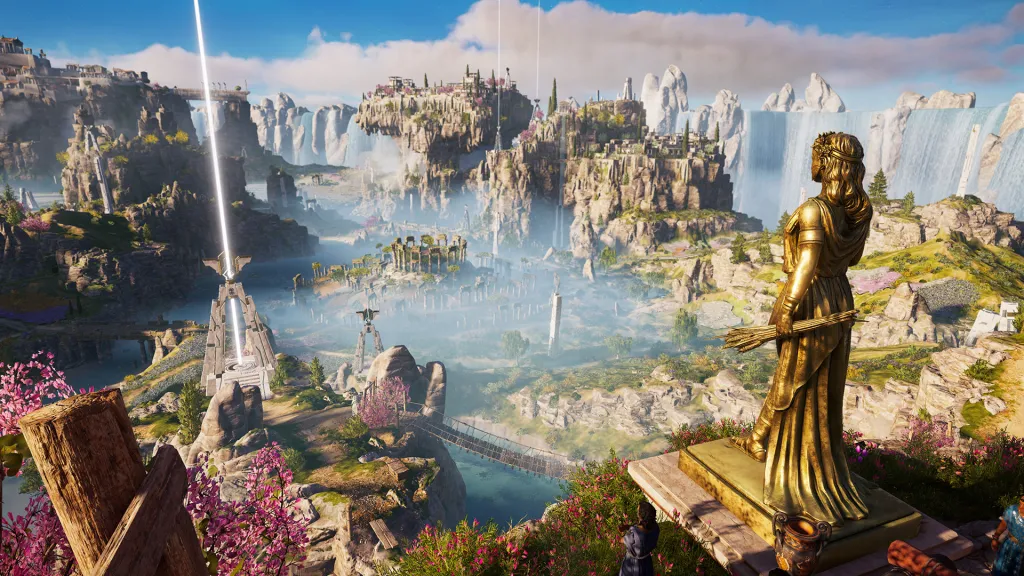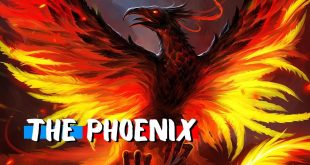
Introduction:
In the vast landscape of speculative fiction and mythology, few concepts captivate the human imagination like the idea of traversing realms beyond mortal comprehension. “Elysium Odyssey: Journey Through the Divine Realm” is a breathtaking saga that takes readers on an unforgettable expedition through a world where gods and mortals intertwine, where epic battles shape destinies, and where the very essence of existence is at stake. This article delves deep into the rich tapestry of the “Elysium Odyssey” universe, exploring its themes, characters, and the profound questions it raises about divinity, humanity, and the nature of reality.
Unveiling the Divine Realms:
At the heart of “Elysium Odyssey” lies the awe-inspiring concept of the Divine Realms – ethereal planes of existence where gods, demigods, and mythical creatures dwell. These realms, each governed by a pantheon of deities, encompass landscapes of unimaginable beauty and danger. From the celestial spires of Olympus to the shadowy depths of the Underworld, each realm is a testament to the boundless creativity of the author’s imagination.
The Protagonists:
Central to the narrative are the protagonists who embark on the titular odyssey. Among them is Aria, a mortal chosen by fate to challenge the gods themselves. With her unwavering courage and unyielding spirit, Aria represents the indomitable human will in the face of divine adversity. Alongside her is Arion, a demigod torn between his loyalty to his celestial kin and his empathy for mortal suffering. Together, they navigate a treacherous journey fraught with peril and self-discovery.
The Antagonists:
No epic tale would be complete without formidable adversaries, and “Elysium Odyssey” delivers in abundance. Chief among them is Thanatos, the enigmatic god of death, whose inscrutable motives and insatiable hunger for power threaten to unravel the very fabric of existence. His minions, from malevolent spirits to ancient titans, serve as formidable obstacles in the heroes’ quest. Yet, beneath their malevolence lies a tragic complexity, hinting at the blurred lines between good and evil in a world shaped by divine intervention.

Themes of Power and Hubris:
At its core, “Elysium Odyssey” explores themes of power and hubris – the intoxicating allure of godhood and the perilous descent into tyranny. As mortals and immortals alike vie for dominion over the realms, they are confronted with the consequences of their actions. The hubris of gods leads to cataclysmic conflicts, while mortal ambition kindles flames of rebellion against divine oppression. Through their trials and tribulations, the characters grapple with the moral ambiguity of wielding power and the delicate balance between order and chaos.
The Mythos Unveiled:
Central to the allure of “Elysium Odyssey” is its rich tapestry of mythology, drawing inspiration from diverse cultural traditions spanning ancient Greece, Norse folklore, and beyond. From the thunderous clashes of Olympian gods to the whispered prophecies of seers and oracles, the narrative weaves together familiar mythological motifs with original twists and interpretations. Through this synthesis, “Elysium Odyssey” offers a fresh perspective on timeless tales, inviting readers to rediscover the wonder of ancient myths through a modern lens.
Exploring Existential Questions:
Beneath its epic battles and divine intrigue, “Elysium Odyssey” grapples with profound existential questions that resonate with readers across ages and cultures. What does it mean to be mortal in a world ruled by immortals? Can humanity transcend its limitations and challenge the very gods who shape its destiny? These questions, echoed in the struggles of the characters, invite contemplation on the nature of existence, free will, and the search for meaning in a universe governed by forces beyond mortal comprehension.
Conclusion:
“Elysium Odyssey: Journey Through the Divine Realm” stands as a testament to the enduring power of myth and imagination. Through its captivating narrative and thought-provoking themes, it invites readers on a transcendent journey beyond the confines of reality, where gods and mortals alike strive, suffer, and ultimately find redemption. As the odyssey unfolds, it leaves an indelible mark on the soul, reminding us of the boundless potential of human courage, resilience, and the enduring quest for transcendence in the face of divine adversity.
 ApkMines ApkMines – Download Apps and Games Free For Android
ApkMines ApkMines – Download Apps and Games Free For Android


